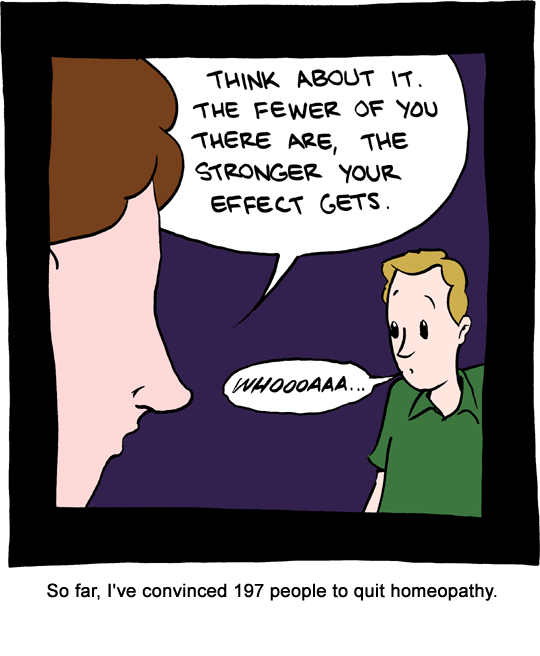The dangers of microscopic vision in science: The example of anti-depressants
Aug. 19, 2011, 11:32 a.m.
|
Depression is a common and disabling illness that may occur in about 10% of the population at any time. There are lots of conflicting opinions about anti-depressants on the web and in the media. Dr John Joska of the Department of Psychiatry and Mental Health at the University of Cape Town has written an article for Quackdown addressing some of the misconceptions about these medicines. |
Should you or your boy-infant get circumcised?
Aug. 11, 2011, 1:45 p.m.
|
What are the benefits, risks and ethics of circumcision? These are important questions to answer for South Africa, where the government is implementing a large circumcision programme to reduce new HIV infections. |
The Khayelitsha Witch-Burning Case
Aug. 2, 2011, 12:13 p.m.
|
Mary-Jane Matsolo of the Treatment Action Campaign tells the story of a fatal arson attack on a woman suspected of being a witch. We publish this story because it shows both how mystical beliefs can have awful consequences, but also how these beliefs do not go unchallenged in South Africa's townships. Racists should find no solace in this story: tens of thousands of people, mostly women, were executed --by the state and not private citizens as in this case-- for being witches in Europe from the 15th to 17th centuries. Ultimately, this is ... |
Don't waste your money on immune boosters
July 20, 2011, 11:56 a.m.
|
The most prolific claim of alternative medicine products must surely be that they boost the immune system. I have a collection of products purchased from Discom making this claim. You'll find immune boosters in almost any pharmacy including, or perhaps especially, the large retail chains. Even big pharmaceutical companies like Boehringer Ingelheim and Cipla sell immune boosters. But what is an immune booster? And do these products really improve your immunity against disease? |
Quacks of a feather?
July 13, 2011, 9:21 a.m.
|
Given that state-sponsored AIDS denialism has come to an end, it seems strange that a major supplement company should invoke the work of the AIDS denialist Anthony Brink. But that is exactly what Solal Technologies has done. |
The Arms Deal and AIDS pseudoscience
July 4, 2011, 5 a.m.
|
HIVEX is a company that promotes a Russian device that it claims "uses electro magnetism to target specific proteins in the HIV virus with the aim of disabling the virus and rendering it ineffective, so that cells stop dying and the immune system can regenerate." They make their claims on various websites, including a company Facebook page. They were also featured earlier this year in a TimesLive video puff piece, but that was taken down after the Treatment Action Campaign (TAC) complained to the editor that the ... |
Miracle mineral scam
June 28, 2011, 7 a.m.
|
Even after various health authorities warned about the health risks associated with drinking Miracle Mineral Supplement, it is still being marketed as a cure for HIV and cancer. |
Madness in psychiatry
June 27, 2011, 12:44 p.m.
|
This excellent article in New Scientist describes how the psychiatric profession in the United States, fuelled by the pharmaceutical industry, is prescribing drugs for conditions that are likely not real diseases, but just variations on normal. |
Homeopathic effects
June 23, 2011, 8:38 a.m.
|
Source: Saturday Morning Breakfast Cereal by Zach Weiner. Used with permission courtesy of the artist. |
YoungAfricaLive's Flawed Youth Survey
June 20, 2011, 4:25 p.m.
|
Surveys, done properly, can tell us important things about people's beliefs, attitudes and behaviour. But when they are done badly, as they often are, they perpetuate confusion and myths. One recent survey on youth attitudes to sex and HIV, announced with much fanfare, was so poor that its results are meaningless. And several journalists reported the survey without a hint of criticism. |










